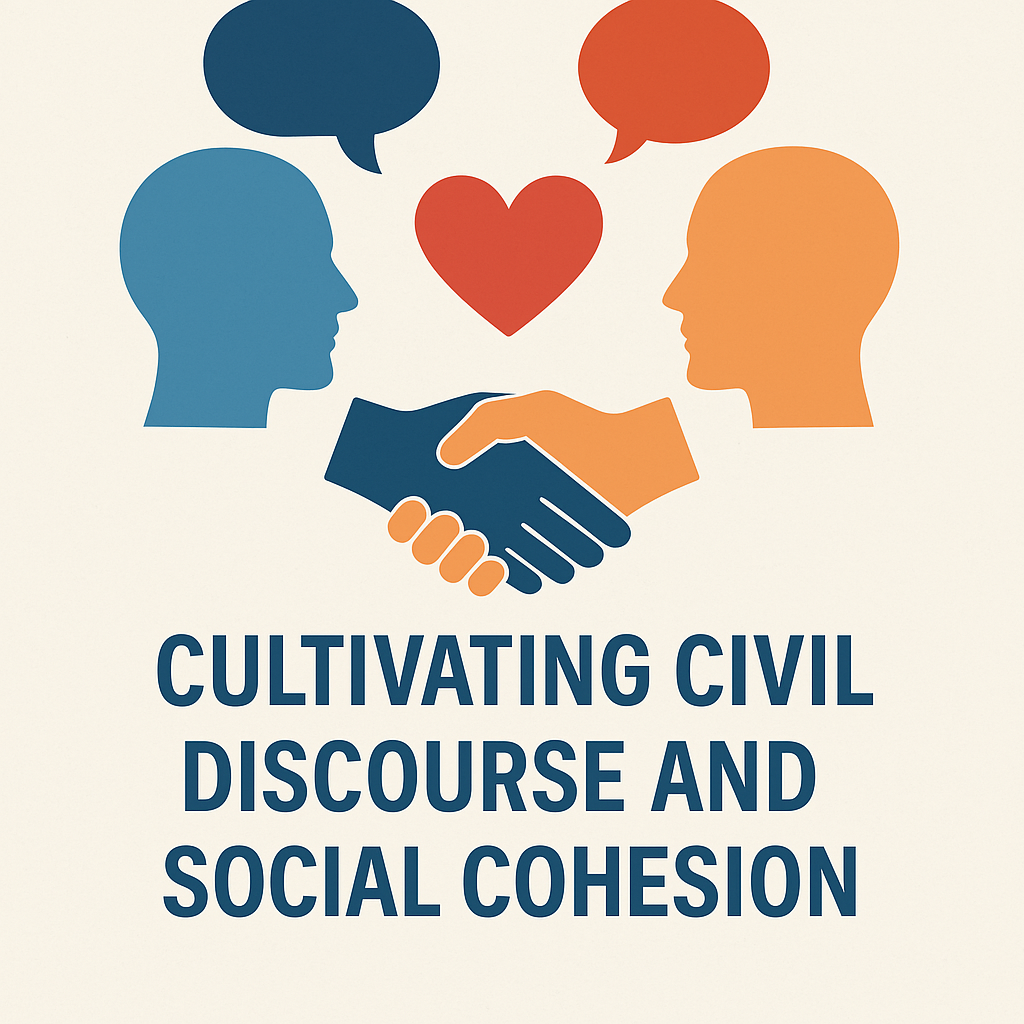
Cultivating Civil Discourse and Social Cohesion: Lessons from Rich Harwood on Derate the Hate
Cultivating Civil Discourse and Social Cohesion: Lessons from Rich Harwood on Derate the Hate
On a recent episode of the Derate the Hate podcast, I had the privilege of speaking with Rich Harwood, founder of the Harwood Institute for Public Innovation. Our conversation centered on how dignity and empathy—two cornerstones of meaningful civic life—can serve as powerful tools for healing political division and rebuilding community trust.
As host of Derate the Hate and Director of Media Systems and Operations at Braver Angels—America’s largest cross-partisan, grassroots movement for civic renewal—I believe that restoring connection across divides starts with recognizing the humanity in one another.
🧱 Dignity: The Foundation of Respectful Dialogue
Dignity is not something granted—it is the inherent worth each person possesses, regardless of belief, identity, or ideology. When we begin conversations by affirming that worth, we create the conditions for real, respectful civil discourse.
Dignity is acknowledged, not earned or assigned.
When leaders and institutions prioritize respect, civic engagement thrives.
Communities that embed dignity into public policy report higher trust and social resilience.
Whether you're engaging neighbors or shaping public decisions, recognizing dignity is step one toward mutual understanding.
💞 Empathy: The Engine of Social Cohesion
Where dignity lays the foundation, empathy builds the bridge. It’s the ability to step into someone else’s experience—not to agree, but to understand. Research shows:
Empathy training in schools can reduce bullying by up to 30%.
Organizations that embrace empathic leadership see employee satisfaction increase by 50%.
Community storytelling initiatives consistently improve cross-group trust.
Practical Empathy Tools:
Listening circles that affirm diverse voices
Perspective-taking workshops to challenge assumptions
Storytelling events that humanize “the other”
These aren’t just strategies—they're relationship infrastructure that makes unity possible.
🛠 Real-World Innovation: Rich Harwood’s Civic Approach in Action
Rich Harwood shared compelling, boots-on-the-ground examples of civic innovation from his work across the country:
“Listening tables” held in laundromats and cafes where neighbors co-create safety plans
Faith-school partnerships integrating empathy curricula and cutting juvenile delinquency rates
Mayor-led listening tours that turn community voices into tangible public action
These projects remind us that the solutions we seek aren’t coming from Washington—they’re born right in our neighborhoods.
🧭 Action Steps for Leaders and Changemakers
Whether you lead a nonprofit, business, school, or community group, here are four ways to put dignity and empathy into practice today:
Host Listening Tables
Foster civil discourse by gathering people for real, face-to-face storytelling around shared civic concerns.
Train in Empathic Communication
Offer workshops on nonjudgmental listening, reflection, and open-ended dialogue.
Audit Your Culture Through a Dignity Lens
Evaluate hiring, policy, and service delivery practices for respect, fairness, and inclusion.
Measure What Matters
Use focus groups, surveys, or story-based evaluations to track improvements in trust, cohesion, and dialogue quality.
🔗 Take the Next Step
Dignity and empathy aren’t buzzwords—they are civic superpowers. They’re the keys to rebuilding broken trust, restoring belief in one another, and creating lasting social cohesion.
🎧 Listen to the full episode:
Restoring Our Belief in Each Other – A New Civic Path for Healing America – Episode 272 with Rich Harwood
🌐 Explore the Harwood Institute:
theharwoodinstitute.org
🤝 Join the Braver Angels movement:
BraverAngels.org
If you're ready to move beyond division and be part of something bigger than yourself, tune in, get involved, and help us build a new civic path—together.

Comments & Upvotes